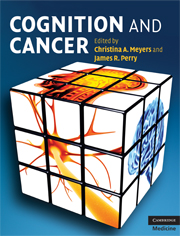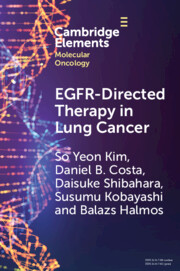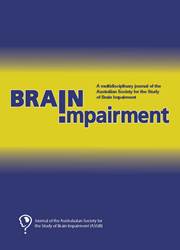Cognition and Cancer
Most people afflicted by cancer will experience cognitive impairment, sometimes referred to as 'chemobrain' or 'chemofog', due to the various direct and indirect effects of their disease and its treatment. In addition, patients with primary or metastatic tumors of the brain experience direct neurologic symptoms due, for example, to the location of their disease, surgical intervention, and the late effects of treatment such as radiotherapy. The aim of this book is to serve as a resource for health care professionals working with cancer patients who experience cognitive changes as a result of their cancer and its treatment. It provides practical information to help improve care by reviewing and describing brain-behavior relationships; research-based evidence on cognitive changes that occur with various cancers and cancer treatments; assessment techniques, including neurocognitive assessment and neuroimaging techniques; and intervention strategies for affected patients. In short, it will explain how to identify, assess and treat these conditions.
- Details the changes in mental function that cancer patients suffer from
- Provides practical guidance on the treatment of patients with 'chemobrain' or 'chemofog'
- Accessible to the wide range of health care professionals and researchers involved in this area
Reviews & endorsements
Review of the hardback: 'The reader of Cognition and Cancer will be left with few unanswered questions … [it] is comprehensive and well written. The chapters are well organised and the majority include useful tables and diagrams … Meyers and Perry have edited a sophisticated and essential reading for primary care physicians, medical and graduate students, nurses, and other health professionals who care for and treat cancer patients.' Journal of the International Neuropsychological Society
Product details
October 2008Hardback
9780521854825
353 pages
253 × 192 × 21 mm
0.93kg
Temporarily unavailable - available from TBC
Table of Contents
- Preface
- List of contributors
- Part I. Cognition and the Brain: Measurement, Tools, and Interpretation:
- 1. Introduction Christina A. Meyers and James R. Perry
- 2. Clinical neuropsychology Jill B. Rich and Angela K. Troyer
- 3. Brain imaging investigation of chemotherapy-induced neurocognitive changes Brenna C. McDonald, Andrew J. Saykin and Tim A. Ahles
- 4. Role of neuropsychological assessment in cancer patients Elana Farace
- 5. Neuropsychological assessment of adults with cancer Anne E. Kayl, Robert Collins, and Jeffrey S. Wefel
- 6. Neuropsychological assessment of children with cancer Louise Penkman Fennell and Robert W. Butler
- Part II. Effects of Cancer and Cancer Treatment on Cognition:
- 7. Biological bases of radiation injury to the brain Edward G. Shaw and Mike E. Robbins
- 8. Chemotherapy and biological response modifier-related cognitive dysfunction Jeffrey S. Wefel, Robert Collins and Anne E. Kayl
- 9. Effect of hormones and hormonal treatment on cognition Christien Schilder, Sanne Schagen and Frits van Dam
- 10. Low grade gliomas Martin J. B. Taphoorn and Charles G. Niel
- 11. High grade gliomas Michael J. Glantz and James R. Perry
- 12. Brain metastases Deepak Khuntia, Beela S. Mathew, Christina A. Meyers, Sterling Johnson and Minesh P. Mehta
- 13. Primary Central Nervous System lymphoma Denise D. Correa
- 14. Childhood brain tumors H. Stacy Nicholson, Louise Penkman Fennell and Robert W. Butler
- 15. Neurofibromatosis Bartlett D. Moore, III and John M. Slopis
- 16. Hematological malignancies Melissa Friedman and Mercedes Fernandez
- 17. Paraneoplastic disorders Edward Dropcho
- 18. Symptomatic therapies and supportive care issues Alan Valentine and Eduardo Bruera
- 19. Animal models and cancer related symptoms Adrian Dunn
- Part III. Interventions and Implications for Clinical Trials:
- 20. Behavioral strategies and rehabilitation Dona E. C. Locke, Jane H. Cerhan and James F. Malec
- 21. Support services Bebe Guill and Renee H. Raynor
- 22. Pharmacologic interventions for the treatment of radiation-induced brain injury Edward G. Shaw, Jerome Butler, L. Douglas Case, Ralph d'Agostino, Jr., John Gleason, Jr., Edward Ip, Mike E. Robbins, Paul Saconn and Stephen R. Rapp
- 23. Neurocognitive testing in clinical trials Jennifer A. Smith and Jeffrey S. Wefel.








